THABISO THELEJANE
PABOLONG, EASTERN CAPE
The peach trees in Makopano Thelejane’s yard are withering in the late autumn dryness. The peaches in the front are for the neighbours and the ones at the back are for the family, Makopano tells us in a lighter moment. That’s what her husband, Thabiso, used to say.
“He was someone who loved people,” she says. “And even now my neighbours ask if the agreement about the peaches is still the same.
Even if it were, pickings would be slim. The four trees at the front are gaunt. The haggard shadows of the 20 or so at the back are lengthening on the parched land as the sun disappears behind the Maluti mountain range.
Nothing in this bleak place, which feels unforgiving, but also ignored, appears inclined to flower any time soon.
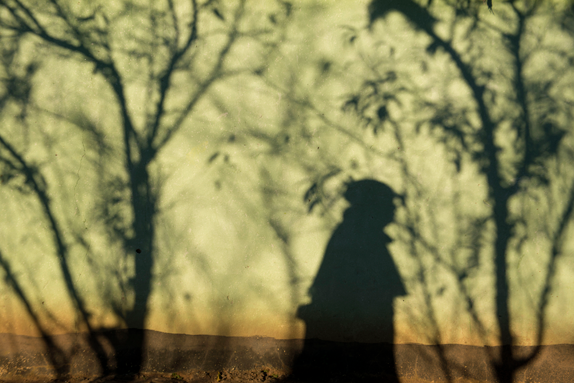
In the rondavel the couple shared in Pabolong, a village between Matatiele and Mount Fletcher in the Eastern Cape, there are baptism certificates, rosary beads and a crucifix. Thabiso, says Makopano, was a devout Roman Catholic. There is a Bible on the bed, family photographs and a transistor radio that Makopano says she can’t listen to any more because bad news “stresses” her out. Joy, like the peach trees outside, appears to be withering in the bleakness that has followed Thabiso’s death.
Makopano says Thabiso had planned to build a sturdy fence around the property so they could keep out the animals and start growing vegetables again. Nothing will be built, though, for Makopano does not even have the R5 she needs to release her cellphone from the neighbour, who charges for solar power. There is no electricity or running water in Pabolong.
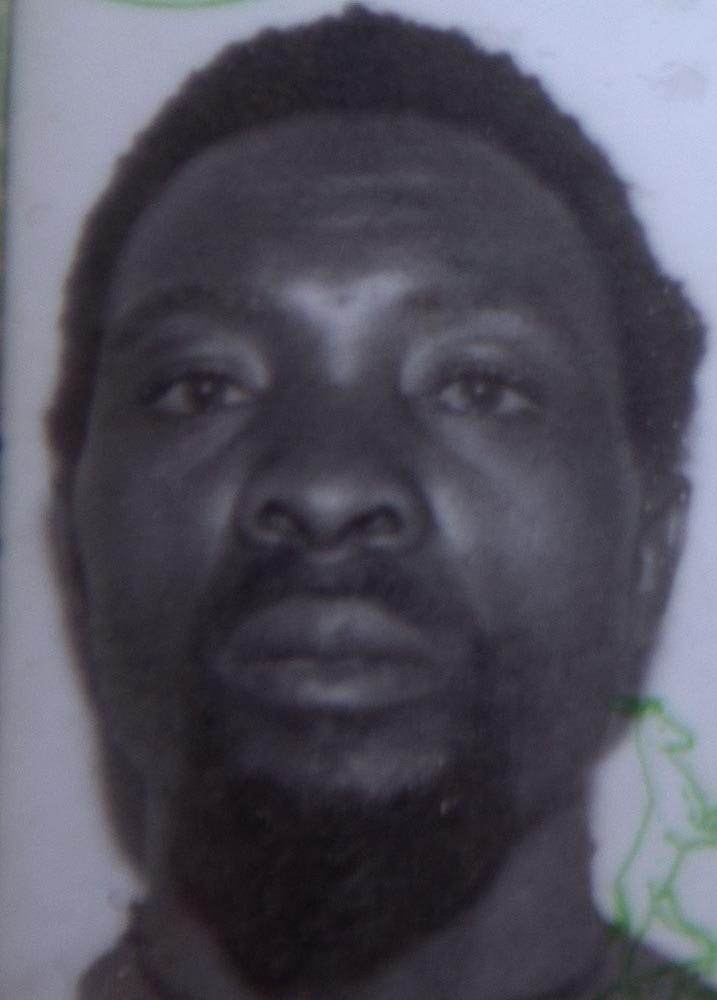
Thabiso Thelejane was 56 when he died at Lonmin. He was an outofcontract worker, so neither his son, Kopano (30), nor his daughter, Khetso (31), qualifies for the lifetime education benefits the company has promised the children of the miners who were killed in the Marikana massacre.
Both are unemployed and too old to qualify for child support grants. There was no provident fund and Makopano, who is 53, is too young to qualify for a pension. There have been applications to government to allow her a special dispensation to draw a pension, but these have so far proved fruitless.
Where her husband used to provide about R2 000 a month for the household and the children while they were looking for jobs in Cape Town, there is now nothing.
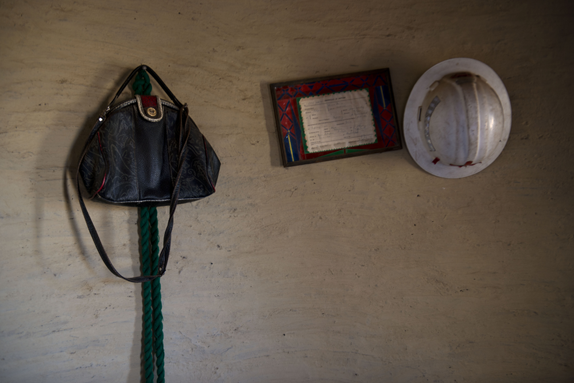
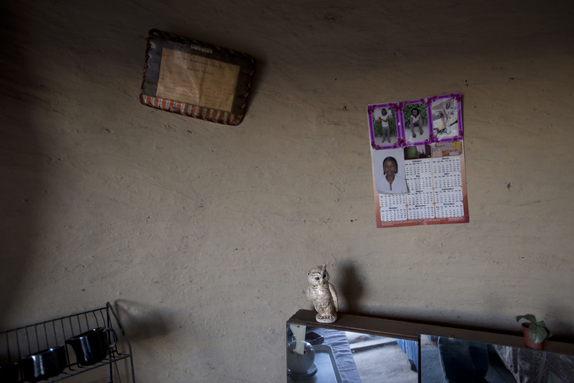
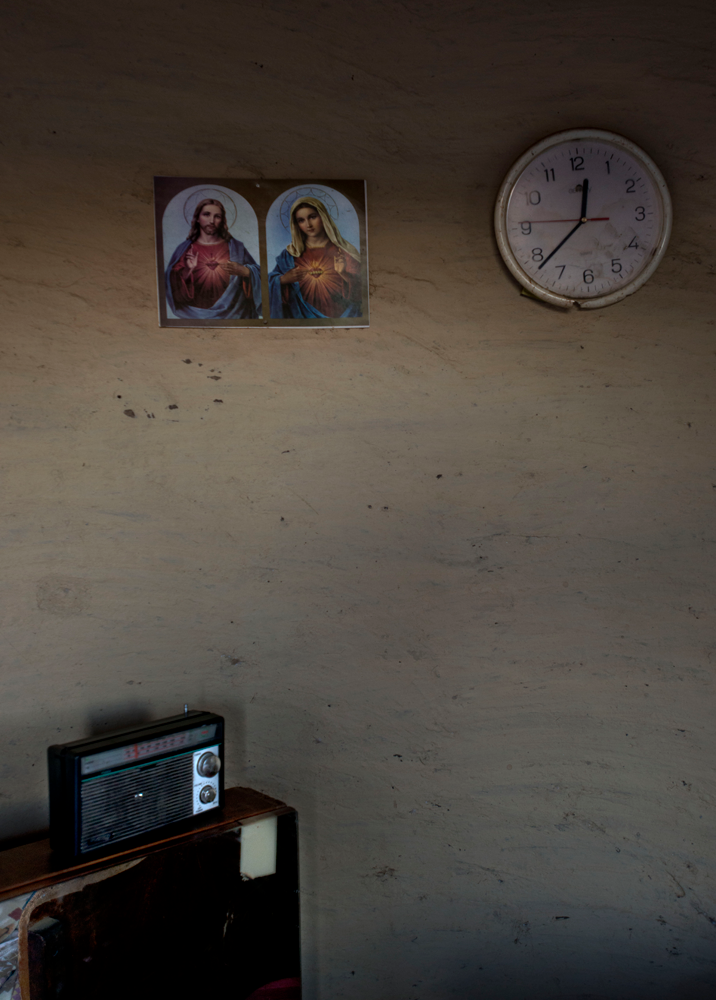
It is May 28 2013 — more than seven months after Thabiso was killed. Makopano fidgets constantly when she speaks to us: with a pair of spectacles, with a Bible. In the lines of her hands there are specks of the mud she says she mixes and packs and repacks because of the stress — “to keep busy”.
Her voice cracks when she speaks of the Farlam Commission of Inquiry. “I don’t know if the truth will come out of the commission … It’s still sitting, it hasn’t disappeared, but they are still killing witnesses,” she says.
“While the commission is sitting, they should discuss what happens to us,” she adds, her anger rising. “How do we survive, because we don’t have our husbands to send us money? How do we survive? There is no discussion about that!”
Every time she returns from the commission, “all the people I owe are waiting for me for payment”.
She previously used some of Thabiso’s monthly remittance to buy vegetables to sell either in the Eastern Cape or in Marikana, where she often stayed with her husband. But now she does not have enough seed capital to start generating that money and is just sinking further into debt.
The food hampers that arrive sporadically from the department of social development sometimes contain “expired food. I got rotten potatoes once and I called Khuselwa [Dyantyi, a representative of the families’ lawyers at the SocioEconomic Rights Institute] for help. She called the South African Social Security Agency, who said, ‘no, we don’t help the people of Marikana’.
“Lonmin could have just fired them and sent my husband home,” says Makopano. “Then at least we would have been suffering in poverty together.”
They were together on August 16 2012. The previous night, over supper, Thabiso had told Makopano the miners were preparing to meet Lonmin the next day at 10am when there was to be a report back on their demands: “Then we didn’t talk about work politics, we talked about family politics. We talked about depositing money for my son in Cape Town and my husband said we would discuss it further when he returned the next day with answers from Lonmin.”
In the morning, Makopano and Thabiso ate breakfast together. He told her to buy meat for the evening meal and left for the koppie. She went shopping and returned to do the laundry as helicopters hovered overhead.
“I did my washing, especially his uniform, because he expected to go back to work. I washed his overalls and ironed them, ready for him to go back to work.”
Makopano cooked chicken and rice for supper and waited for her husband, who usually returned from the koppie after 3pm.
Later, she heard gunshots. News filtered through of the shooting.
“I uttered words that I shouldn’t have uttered,” she says. “‘Where was God?’ It was day, but it felt like night, like darkness all around me.”
Makopano ran from her shack towards the koppie. “People were running towards me from the mountain, from everywhere, warning us that something terrible had happened.”
Unable to get too close, or to find answers in the chaos, she called her landlord, who was also a miner. But he had been arrested and had not seen Thabiso.
“That night I went to the mortuary. My husband was one of the first bodies there. “They said I had to wait until Lonmin got there before I could do anything with the body. That I mustn’t do anything until Lonmin organised things, but that they would only be able to get there on Monday,” says Makopano. “Then they told me to choose a coffin.”
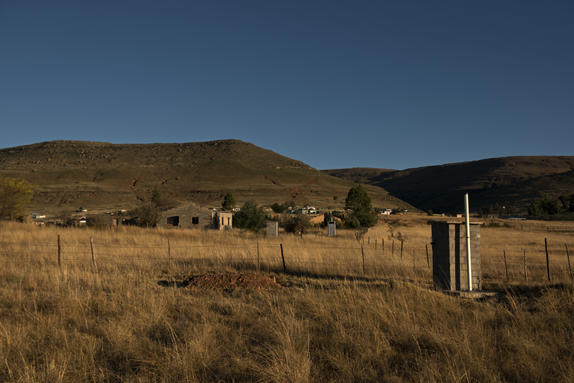
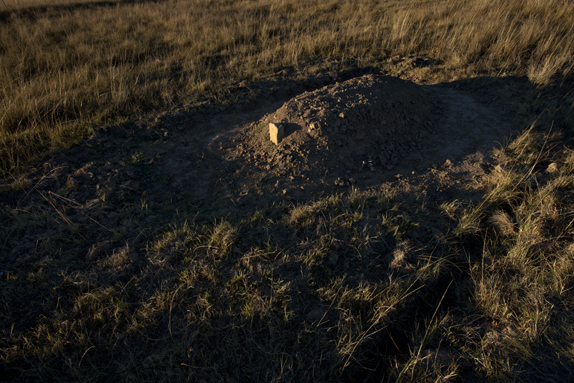
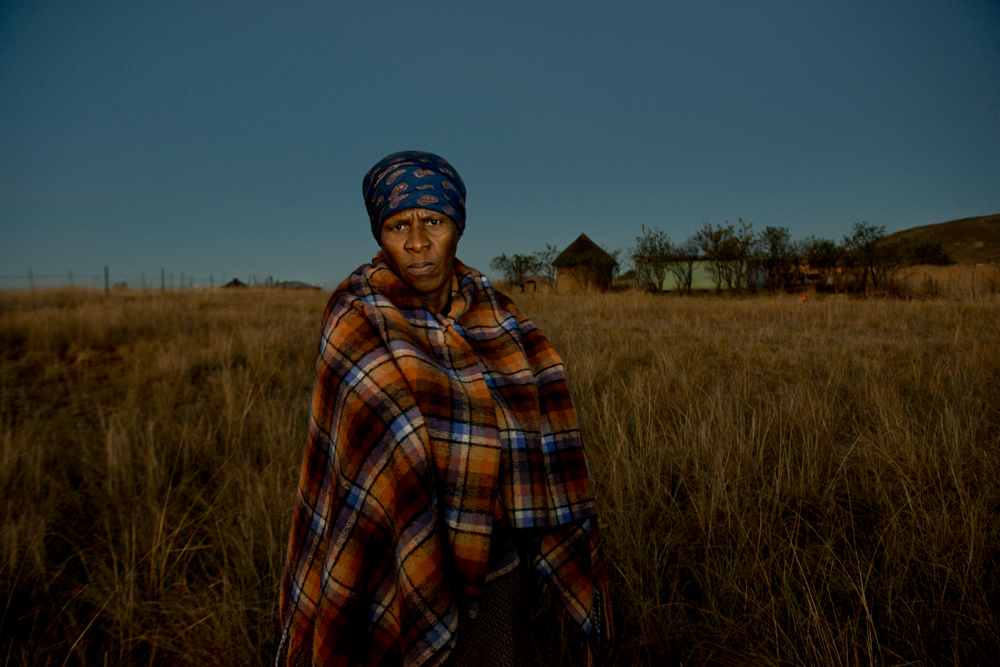
Leave a Reply
You must be logged in to post a comment.